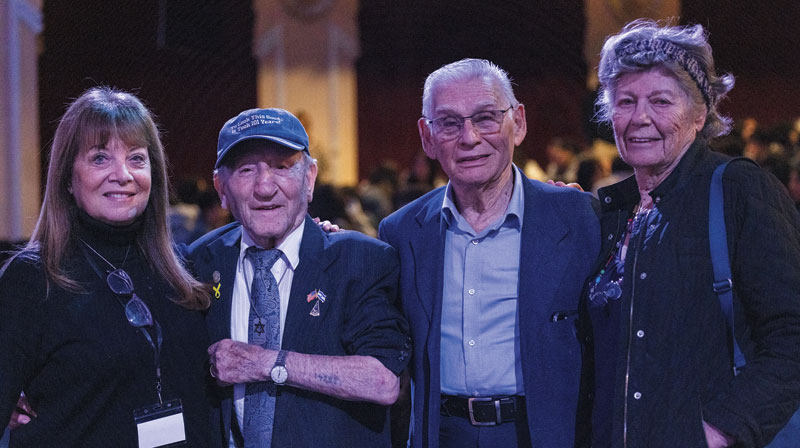
Israel’s greatest miracle might not be its survival against all odds, or the brilliance of its entrepreneurial start-up culture. In my mind it is the unusually high percentage of its population who say that they are very happy with their lives. No doubt the current nightmare will negatively impact their reported sense of contentment, but there is every reason to believe that the numbers will eventually rebound.
As a professor of economics, I am embarrassed to admit that members of my discipline typically dismiss the use of happiness as a measure of well-being. For them, the best indicator of a nation’s success is its wealth, not how its citizens feel about themselves.
That changed at least a bit when a path-breaking economist, USC’s Richard Easterlin, published the first in a long series of seminal articles around the theme “Does Money Buy Happiness?” One of Easterlin’s greatest contributions was the identification of what came to be known as the “Easterlin Paradox” — that while richer people in a particular country report that they are happier than their less affluent counterparts, residents of nations that have experienced even the most rapid increases in material well-being don’t seem happier on average than they did before. Why is that? According to Easterlin, individuals compare their incomes to others, especially to their parents when they were being raised, and to their friends and neighbors today. Their absolute income matters less than their relative position. In the immortal words of cultural critic H.L. Mencken, “A wealthy man is one who earns $100 a year more than his wife’s sister’s husband.” If a rising tide of prosperity lifts all boats together, a person’s relative status may remain unchanged, and hence that person might feel no better off than earlier.
China provides a vivid example of this phenomenon. Beginning in the early 1990s, and lasting a quarter century, China experienced what was arguably the fastest economic growth ever recorded. However, the percentage of people who said that they were very happy failed to rise.
So if economic growth isn’t a path to happiness, what is? Let’s look at the places that lead the world based on happiness surveys. The most recent one (which averaged over the years 2021 to 2023) ranked Finland first, followed by Denmark, Iceland, Sweden, and Israel. The U.S. was 23rd.
Some sociologists point to the homogeneity of the population within the highest ranked countries as a key explanation for their elevated level of overall satisfaction. While diversity can be a source of tremendous vitality, it often comes at the price of community cohesion.
But how do you explain Israel coming in fifth? While 73% of its residents are Jewish, Israeli Jews are anything but homogeneous. They are Ashkenazi, Sephardic, Mizrahi, and for more than half of Israel’s Jewish population, a mixture of several groups. Yet, somehow all that diversity doesn’t adversely affect their happiness score.
A number of commentators, including Dan Senor and Saul Singer in their book “The Genius of Israel,” have argued that the secret is that Israelis have an abiding commitment to their families and to each other. Part of their evidence is the amazing fact that more than 70% of Jewish Israelis sit down together for Shabbat dinner each week. Grandparents, parents, and children; friends and neighbors. As the authors put it, while Americans may celebrate with family once a year at Thanksgiving, Israelis do it weekly.
While Americans may celebrate with family once a year at Thanksgiving, Israelis do it weekly. Maybe more of us should try that here.
Maybe more of us should try that here.
We better try something. Economists estimate that over 80% of baby boomers ended up richer than their parents, a percentage that is similar to the experience of earlier generations. However, research from Harvard economist Raj Chetty suggests that only half of the members of more recent cohorts have achieved the same. Think about that for a minute: What is left of the American Dream when one out of two of our children and grandchildren end up with a lower material standard of living than we have had? If Easterlin is correct and they feel poor relative to us, that certainly doesn’t bode well for how they will feel about their lives.
Finland, Denmark, Iceland, and Sweden are way too cold and dark in the winter, so forget about moving there to find happiness. Instead, perhaps we can discover that nirvana is as close as the Shabbat dinner table.
Morton Schapiro is the former president of Williams College and Northwestern University. His most recent book (with Gary Saul Morson) is “Minds Wide Shut: How the New Fundamentalisms Divide Us.”






















 More news and opinions than at a Shabbat dinner, right in your inbox.
More news and opinions than at a Shabbat dinner, right in your inbox.